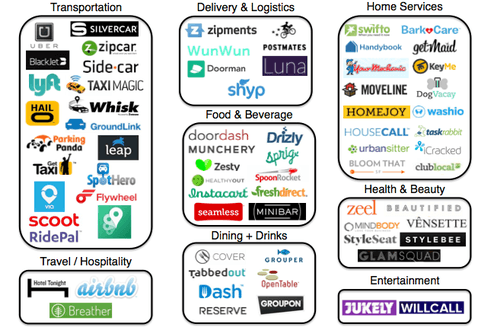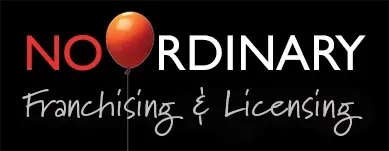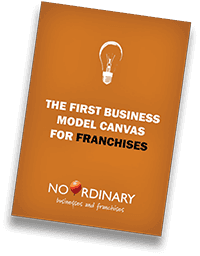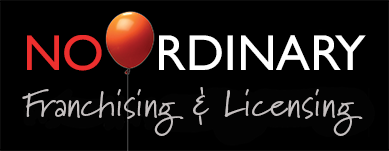THE ON-DEMAND ECONOMY:THREAT OR OPPORTUNITY FOR FRANCHISING?
We are yet to see the effects of the On-demand Economy (otherwise known as the Sharing Economy) – but we will. In other parts of the world, the Sharing Economy – sometimes known as the Gig Economy – has brought disruption, protests and multi-billion-dollar valuations. Is this a threat to franchising - or an opportunity?
What is the Sharing Economy? Let’s look at two of the two best-known practitioners, Airbnb and Uber. Their stated purpose? To allow “regular people” to make a few extra bucks renting out an extra bedroom or giving fellow travellers a ride.
On the surface, that doesn’t sound as if it would be too disruptive to the traditional taxi and hotel industries. But if it isn’t, why are taxi drivers and hoteliers up in arms? And if it’s just a casual “few extra bucks” for a handful of people, why is Uber rumoured to be generating about $2 billion in net revenue annually and picked to become the hottest IPO of 2015? And why has Airbnb been valued at $10 billion, more than many long-established hotels, including Hyatt Hotels which is valued at $8.4 billion?
The answers lie in the quality and convenience of the service delivery that drive Uber’s and Airbnb’s businesses, and the way they allow ordinary people to monetise what are typically two of their biggest assets – their car and their home.
Such has been the demand for Sharing Economy services like Uber, Airbnb, grocery delivery service Instacart and courier service Postmates that research firm Greylock Partners estimates that their total revenue in the United States could grow as large as $10 billion this year. For many Americans, that level of demand has done more than put a “few extra bucks” in their pockets, it has created a whole new business opportunity.
So should franchisors see the rise of the Sharing Economy as a threat to their businesses? Let’s face it, many established taxi, hotel and courier services are provided by franchises. Should they be worried that the Sharing Economy could enable just about anybody to set up in the same businesses and enjoy many of the same benefits that franchisees enjoy?
To find the answer, we need to fully understand the question. When you think about it, Franchising was an early version of the Sharing Economy. Franchising and the Sharing Economy have much in common – a common brand, group marketing, business referrals, the list goes on. In fact, it has been suggested that the Sharing Economy has its roots in Franchising. One writer, Drew Patterson, the co-founder of Sharing Economy stars Jetsetter and Kayak, has said that the Sharing Economy is best understood as “reimagined franchise operations that leverage mobile data, the social graph, and continuous feedback loops to deliver a better consumer experience”.
But surely Franchising with its careful franchisee selection processes, long-term business commitment, better branding and built-in quality controls offers benefits that the Sharing Economy can’t?
“With mobile as a service delivery mechanism (e.g. where is each Uber driver right now?) and embedding consumer feedback loops into the product (e.g. you can’t book another Uber before rating your last ride), these sharing economy businesses have visibility into franchisee operations that McDonald’s could only dream about,” says Patterson. “And unlike traditional franchisees that have a long, litigious process to deal with service failure, Uber and Airbnb respond by simply reducing demand to poor performers through market operations or blacklisting bad actors.”
This chart by Steve Schlaf in his article Uberification of the US Service Economy shows the extent to which the Sharing Economy has penetrated into the services industry in the United States.

Getting back to my earlier question: Should franchisors see the rise of the On-demand Economy as a threat to their businesses?
The answer, in my view, is: Only if they let it.
By switching their mindset, franchisors could take this perceived threat as an opportunity – an opportunity to incorporate the same kind of technology that works so well for the On-demand Economy into their own service offer. Drew Patterson notes that many existing businesses – including franchises – have also been using On-demand Economy services to promote or improve their own businesses. For example, many smaller hoteliers are now listing on Airbnb. The Wyndham Hotel franchise group posts TripAdvisor data on its websites to create a tighter feedback loop between guests and franchisees.
This kind of opportunity for franchisors is amplified by the trouble the On-demand Economy has got itself into by being so good at what it does and therefore so disruptive to the status quo. “Ride-sharing” service Uber is facing roadblocks in its expansion programme around the world. Uber is banned in several countries and facing legal action in many others. Its unlicensed activities have brought mass protests by taxi drivers in Paris and other parts of Europe. Even Uber’s own drivers have demonstrated in the United States against Uber’s low fares, tipping policy, five-star rating system, and driver safety.
Drew Patterson says the On-demand Economy will need to fall more into line with the status quo if it is to be ultimately successful. “Adherence to insurance requirements, taxes, zoning limitations, licensing, and safety practices are inevitable as Airbnb, Uber, and others look more and more like their established competitors from a supply standpoint,” he says.
What, then, should a smart franchisor do? Learn from the On-demand Economy’s mistakes while quietly tapping into what Drew Patterson calls its “genius” – revolutionising an existing service model – to deliver a radically improved customer experience.
My name is Robin La Pere, and I have been working with disruptive new business models since Apple burst into the market with its unique personal computers.
I was at the forefront of major new movements in the retail, financial, construction and franchise industries and work with established businesses as well as start-ups on creating and renewing business models and improving franchise performance.
I see the advent of the on-demand economy as an opportunity for franchises and invite you to contact me
for a free Initial Consultation to discuss the potential benefits for your franchise.
Relevant Articles
A major strength of franchising is that it’s based on tried and true business models. Trouble is, in this fast-changing business environment, what’s tried and true one year may be tired or irrelevant the next.
Not surprisingly, one out of three franchisors is concerned about the viability of their business model.
The 'Business Model Canvas' has emerged as a powerful tool for developing and updating business models. Recognising that franchise businesses differ in several ways from other business types, I have come up with a new version of the Business Model Canvas designed specifically for franchises.
Send me your email and I'll email you my e-book The Business Model Canvas for Franchisors:
First Business Model Canvas for Franchisors ebook
Subscribe to my newsletter
Every two weeks, I write an email newsletter designed for those in franchising and those considering getting into franchising. Topics include those you see in the articles listed above and are intended to be stimulating, helpful and challenging. These articles have helped me gain more than 100,000 followers on Twitter and worldwide connections on LinkedIn, but you can read them first by subscribing to the newsletter.
Subscribe by entering your email address here:




